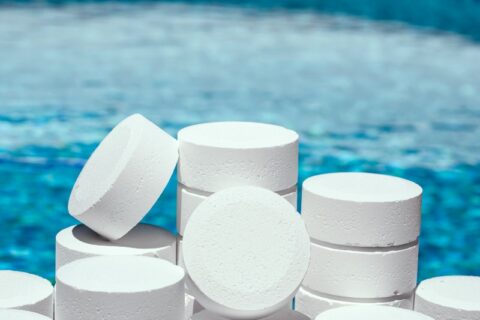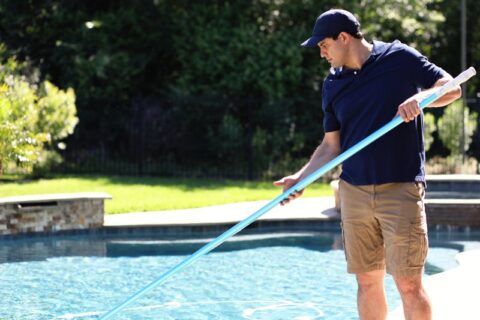What’s the Optimal Water Level for Your Pool?
When it rains, your pool water level rises. That’s great in terms of pool maintenance because it means you don’t have to put water in yourself, right? Perhaps not. Overfilling your pool can cause your pool skimmer to work ineffectively or even stop working. How high should the water level be in a pool, anyway?
Whether or not it rains, you should be checking your pool’s water level daily. You can install a pool water level sensor to keep track of this for you, or you can check it visually. Ideally, your pool water should be between one-half and one-third of the way up the skimmer opening. You’ll rarely have to remove water, but you may need to top it off from time to time.
If the pool water is too low, it can spell disaster for your pool’s filtration system. If there is not enough water for the skimmer to pull in, it will start drawing air into the filter. When that happens, it’s easy for the motor for your pump to burn out, which can necessitate the replacement of your entire filtration system. But what happens if the pool water level is too high? Too much water is less serious than too little water, but a high water level can reduce the efficiency of your skimmer. This means your pool will get dirty quickly and you’ll have to clean it manually.
If you’ve got an above-ground pool, you may need to figure out how to level a pool with water in it. For an inground pool, the process of restoring water to the right level is much simpler. You’ll need to remove pool furniture and anything electrical out of the possible line of overflow, and you can reduce the water level by running your pool pump on backwash or waste, pulling water out of the pool. If you’re pumping water from your pool into the public sewer line, make sure to reduce the level of chlorine before you do it, to avoid causing damage to the ecosystem. Never drain the pool, though, because this can cause significant damage. Pools are meant to be full; an empty pool can crack or even pop out of the ground.
When you need someone to help maintain or repair your pool, Millennium Pools and Spas can help. With over 30 combined years of experience in the pool industry, we provide a comprehensive range of pool services for both residential and commercial customers in Virginia, Washington DC, and Maryland. When you hire Millennium Pool Service, you get a well-qualified, industry-trained staff of pool contractors and technicians, services that are tailored to your needs, and a commitment to 100% customer satisfaction. Contact us for more information.


